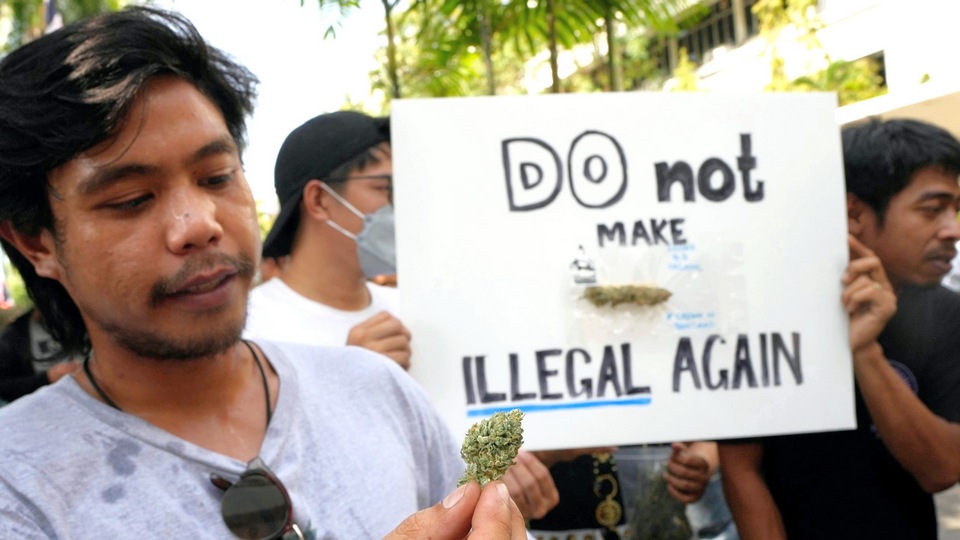
Historians will one day marvel that a right-wing, military-backed government in Thailand has been so progressive on several social issues. Capital punishment for murder has all but been abandoned, apart from one solitary exception in 2018. Abortion has been legalized under defined conditions and gay marriage legislation is far advanced in the parliamentary process. Last June, cannabis became broadly legal not only for medicine and as a food additive, but for recreational purposes too.
For many conservative and backlashing Thais that liberalization was a step too far. Earlier this week, the public health ministry desperately revised the rules in an attempt to block the movement wanting to recriminalize the weed. Cannabis buds – flowers that contain the main concentrations of cannabinoid drugs – are now a controlled herb. Teens and pregnant or nursing women are reminded to keep clear, whilst vending machines, mobile merchants and online transactions are illegal. Selling is banned in most public places or business premises unless a medical practitioner is in attendance.
Pattaya has 197 weed shops, cafes and dispensaries, according to the website Cannabis Weed Shops with innovative names such as Smokeys, Ganjahub and Speakeasy Revolution. The establishments don’t know any more where they stand if they sell for recreational purposes. Because the health ministry regulations are edicts and not parliamentary laws, it is not clear who is responsible for enforcing them. Many of Pattaya’s ganja-selling premises are expensively laid out and furnished. They were obviously financed for the long-term future.
A recent rally brought together cannabis farmers and shop owners who stand to lose out financially in addition to smokers who want to enjoy the various weed strains, the pre-rolled joints and the pot-infused gummies. But Thailand’s administrative court has already accepted a lawsuit filed by a doctor and opposition politicians to make cannabis an unlawful drug once again. Many observers believe that the key problem is the ham-fisted way decriminalization was introduced last June without a parliamentary act to supervise, clarify and limit selling and consumption.
Thai politics have an endearing habit of muddling through to some sort of collective compromise. After all, nobody knows to what extent the weed is linked to the phenomenal growth of international tourism right now. But a general election must be held within months. If, as many predict, the opposition Pheu Thai takes power as the largest party, its policy to recriminalize recreational use of the weed could be a false dawn for pioneering drug liberalization throughout Asia. The baby would indeed be thrown out with the bath water.
 |
 |
 |





